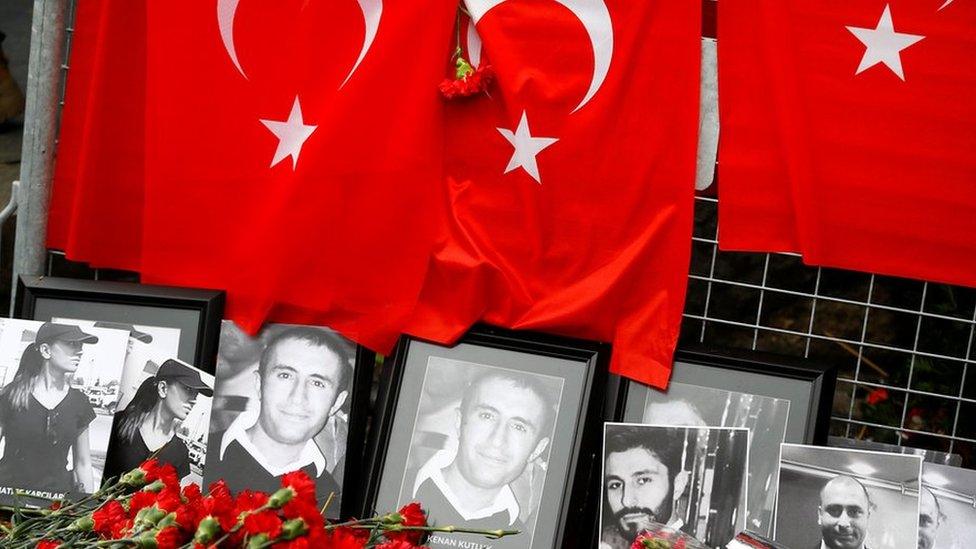Ankara bombing: Turkey strikes against Kurdish rebel PKK
- Published
The BBC's Mark Lowen says there is pain and disbelief in Ankara
Turkey has launched air strikes against Kurdish rebels in northern Iraq following a bomb attack in Ankara that killed 37 people.
No group said it carried out the attack but PM Ahmet Davutoglu said evidence "almost certainly" pointed towards the banned PKK Kurdish separatist group.
One of the bombers, who also died in the blast, was "definitely" a woman, Deputy PM Numan Kurtulmus said.
President Recep Tayyip Erdogan vowed a crackdown after Sunday's bombing.
Mr Davutoglu said 11 people had so far been detained in connection with the attack.
"There are very serious, almost certain indications that point to the separatist terror organisation,'' he said, referring to the PKK (Kurdistan Workers' Party).
Four of those detained were in the south-eastern city of Sanliurfa, according to Turkish media. Officials were quoted as saying the car used in the bombing was traced to a showroom there.
The 13 March blast in Ankara was claimed by the Kurdish militant group TAK
Mr Kurtulmus told reporters that a second suicide bomber was male, but had not yet been identified.
Earlier, unnamed security officials said the female bomber was a member of the PKK from the eastern town of Kars, who joined the group in 2013.
Eleven warplanes carried out air strikes on 18 PKK targets in northern Iraq including ammunition dumps and shelters in the Qandil and Gara sectors, the army said. The PKK confirmed the strikes.
How dangerous is Turkey's unrest?
Tears and destruction amid PKK crackdown
Turkey in midst of hideous vortex
Meanwhile, curfews have been imposed in two mainly Kurdish towns in south-eastern Turkey, Yuksekova and Nusaybin, as security operations are carried out against Kurdish militants, Anadolu news agency reports. Another curfew is due to start in the city of Sirnak.
Funeral services have been taking place for some of those killed. Among the victims was the father of a Turkish international footballer. More than 100 people were wounded in the blast.
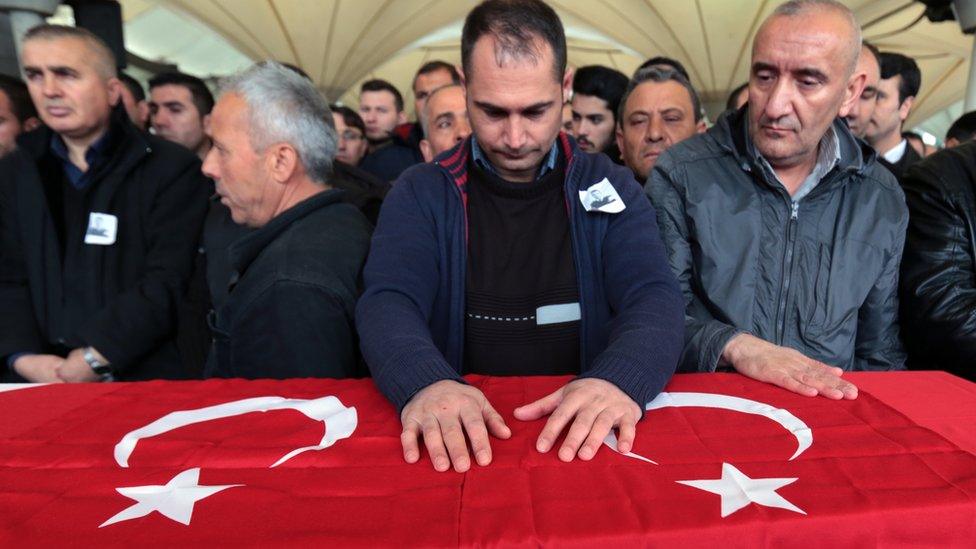
Funerals have been taking place for those killed in Sunday's attack
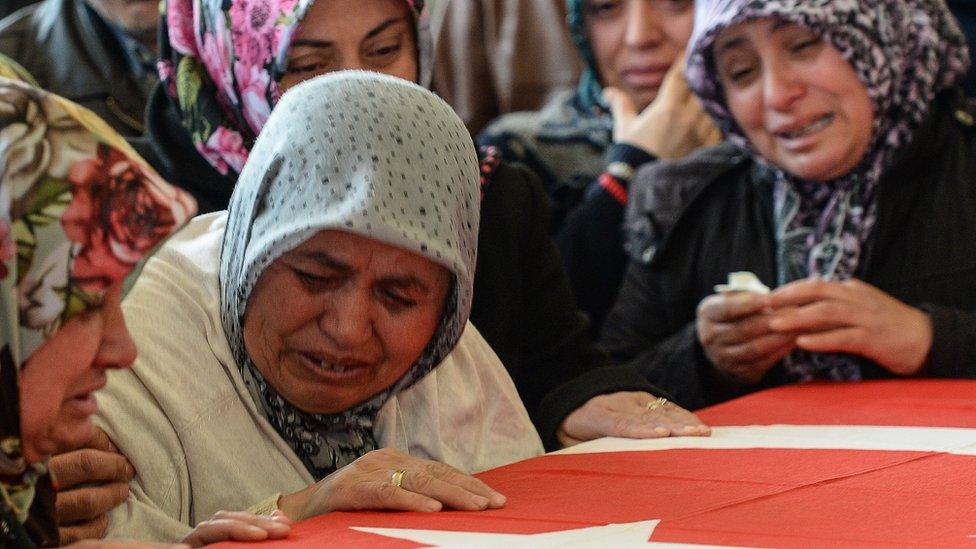
Turkey has seen frequent attacks from Kurdish rebels in recent months
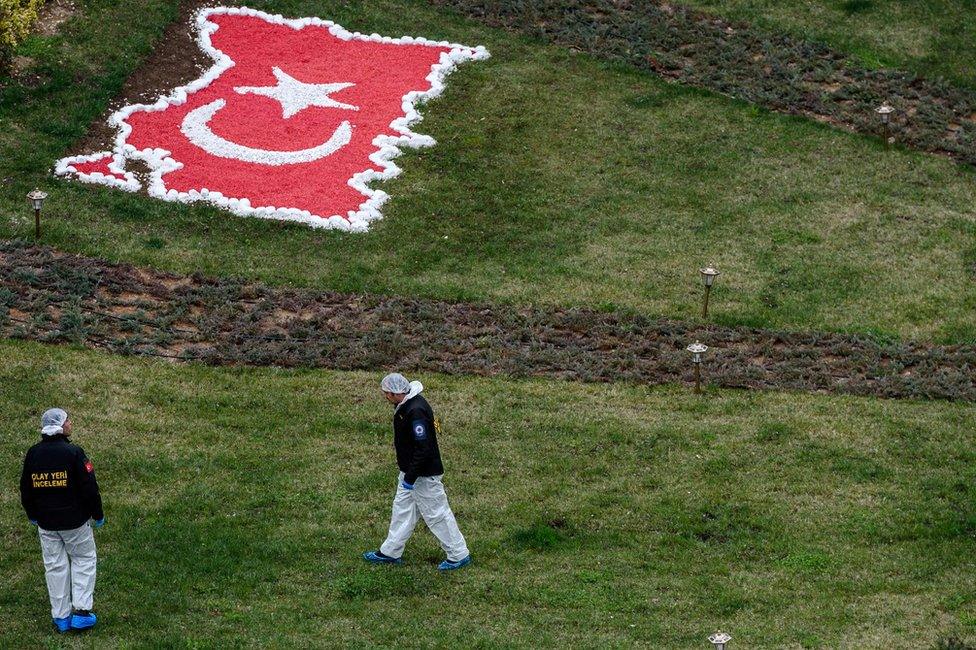
Investigators have been combing the scene of the blast site in Ankara
Turkey is part of the US-led coalition against IS and allows coalition planes to use its air base at Incirlik for raids on Iraq and Syria.
It has also been carrying out a campaign of bombardment against Syrian Kurdish fighters of the People's Protection Units (YPG), which it regards as a extension of the PKK.

Kurdish groups across the region
Turkey
Pro-Kurdish People's Democratic Party (HDP) - with representation in parliament but accused by ruling party of supporting militants
Banned Kurdistan Workers' Party (PKK) - hostile to Turkish government, has camps in northern Iraq and operates in south-eastern Turkey
Kurdistan Freedom Hawks (TAK) - offshoot of PKK, said it was behind last month's Ankara bombing
Syria
Democratic Unity Party (PYD) - linked to PKK
People's Protection Units (YPG) - controls area on Turkish border known as Rojava. Mainly fighting IS, but regarded by Turkey as an extension of the PKK
Iraq
Kurdish Regional Government (KRG) - runs Kurdish region of northern Iraq with Peshmerga as armed forces, has friendly relations with Turkey
KDP - dominant political party in the region

Turkey's pro-Kurdish political party, the HDP, issued a statement condemning the attack, saying it shares "the huge pain felt along with our citizens".
Last month, a bomb attack on a military convoy in Ankara killed 28 people and wounded dozens more.
That bombing was claimed by a Kurdish militant group, the Kurdistan Freedom Hawks (TAK). It said on its website that the attack was in retaliation for the policies of President Erdogan.
Turkey, however, blamed a Syrian national who was a member of the YPG.
Last October, more than 100 people were killed in a double-suicide bombing at a Kurdish peace rally in Ankara.
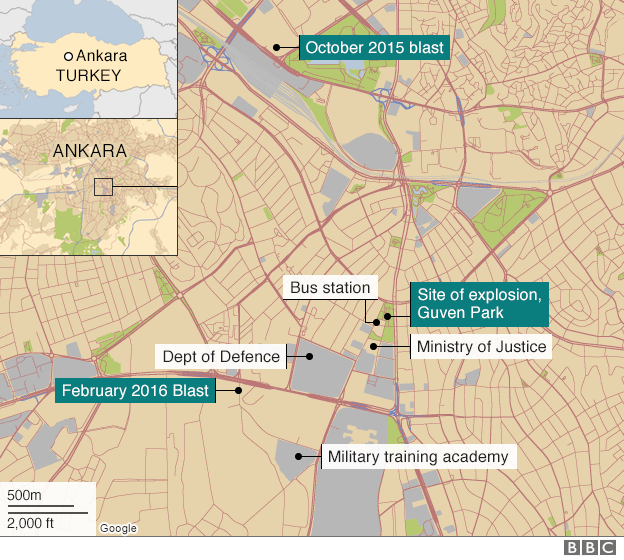
- Published5 January 2017
